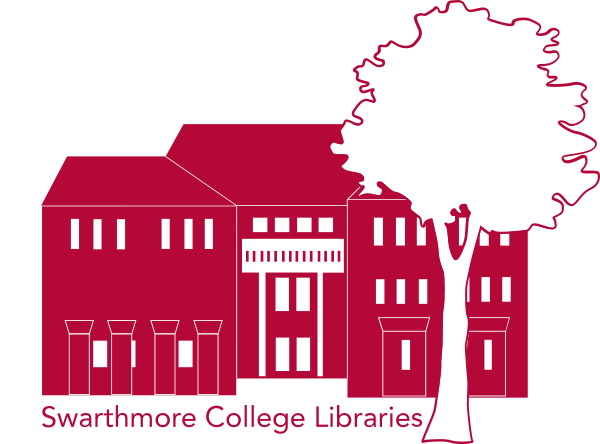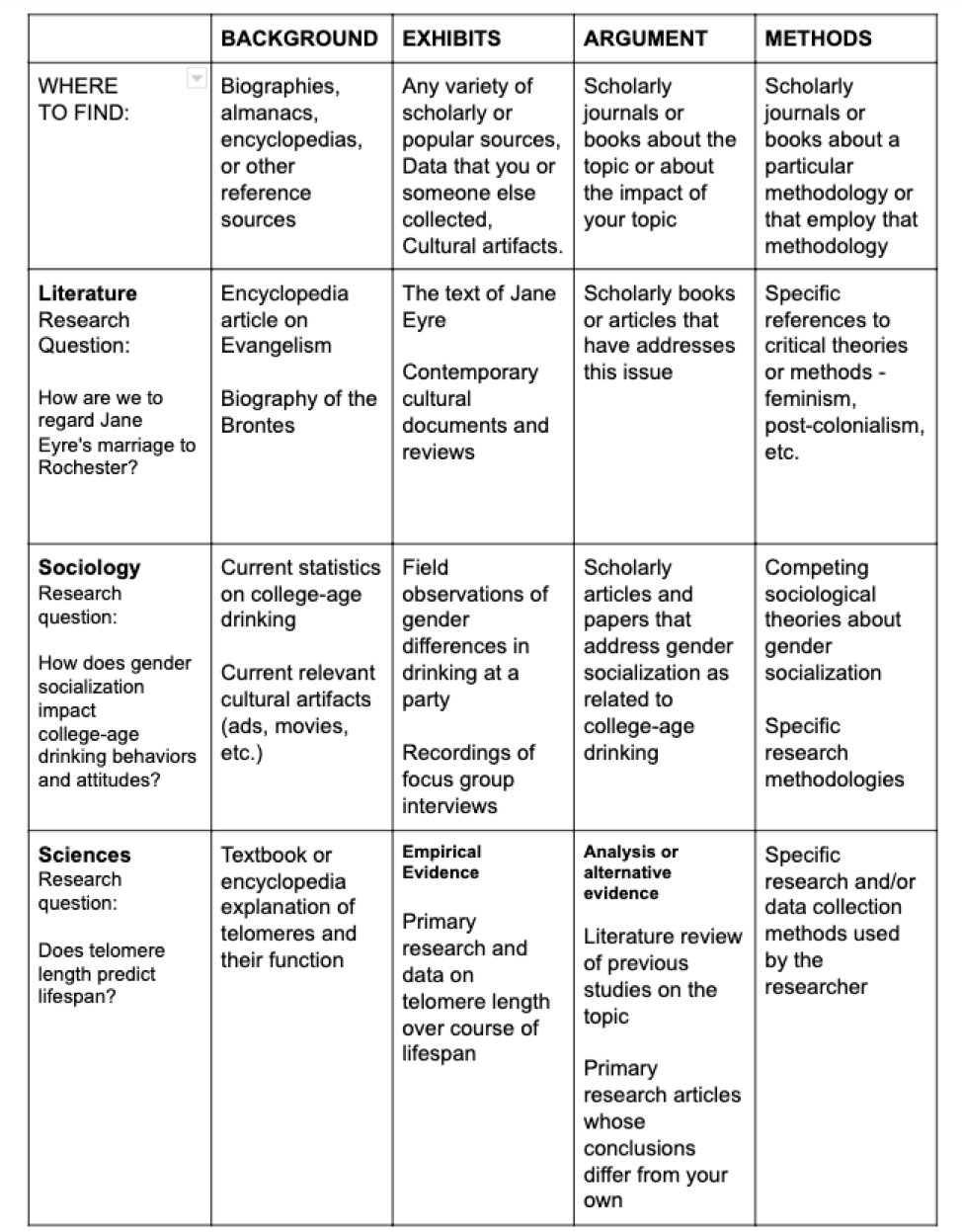Research and The Libraries

S3P 7.21.20
+ Introduction to the libraries
+ What is research?
+ How do we find it?
What are we doing here?
But first...
Breakout groups
Introductions
- Name
- Hometown
- Favorite dessert
- Tell us about an experience you've had in a library or with a librarian

Resources
Advice
Services
Spaces
{Subscriptions, Books, Journal Articles, Databases}
{Research help from librarians + RIAs}
{Requesting articles, Borrowing books from other libraries}
The Libraries
{McCabe, Cornell, Underhill}
(+ a lot more!)
What is Research?
process
(something you do)
stuff
(something you find)
"I’m studying drosophila to determine whether odor changes mating behavior."
"I'm looking for articles on
olfactory response in the mating behavior of drosophila."
Kinds of resources
- Print books
- Print journals
- eBooks
- Online journals
- Articles
- Book chapters
- Data and Statistics
- Maps
- Magazines and Newspapers
- DVDs and streaming video
How do we find them?





Homework Review: Tripod Tutorial

Homework Review: Tripod Tutorial

Homework Review: Tripod Tutorial
Essentials
What is Tripod?
Use it to discover books, articles, videos, & more.
Find a library copy or online access.
Refining your Search
You can limit what you're searching for (examples: articles only, Course Reserves only).
You can narrow Tripod results using facets.
Navigating Results
For best results, sign in.
Clicking on the title of an entry will show you the full record, including where it's located.
You can request books to be delivered in person or for online access.
There is an option to view holdings for Course Reserves.
Homework Review: Research Cycle

Homework Review: Pre-Assessment

Photo by The Creative Exchange on Unsplash
B / E / A / M
Writers rely on background sources, interpret or analyze exhibits, engage arguments, and follow methods.
Bizup (2008)
Exhibit (Evidence)
Background
Materials used to establish facts. Implies membership in a community based on shared references
The materials to be analyzed, examined or interpreted
Argument
Sources you engage with or respond to directly by countering, extending or refining the claims made
Method (Model)
Using a source's way of analyzing an issue to apply to your own issue
B/E/A/M examples

(Link in Moodle)
Practice using BEAM
For the next section, we'll give you four examples where you'll choose what part of BEAM applies the best.
To participate in the live poll, as we go, click here:
https://PollEv.com/multiple_choice_polls/JJ2ptd7y5Q8hB8nPjx98K/respond
Practice using BEAM
1
“Punitive discipline policies that are purported to keep students safe but in fact disproportionately suspend Black students (Smith & Harper, 2015), low expectations of Black students (Irvine, 1991), and sustained cycles of divestment in the social, academic, and material resources students need (Aggarwal, Mayorga, & Nevel, 2012) are just some examples of slow violence in schools” (217).
Evidence
Practice using BEAM
2
“Such rhetoric around public school reform strategies such as charter schools, mayoral control, and school closings, represents a power erasure (Kincheloe & Steinberg, 1997) that allows current school reforms to appear as equity measures while, in reality, such reforms have dire consequences for communities of Color, particularly for Black students.”
Argument
Practice using BEAM
3
“The Movement for Black Lives is a coalition of over 50 organizations, of which the Black Lives Matter Network is one member. More often than not, however, BLM is used as an umbrella term with which many concerned with justice for Black people globally identify, regardless of any formal connection to the specific organization or coalition” (213).
Background
Practice using BEAM
4
“For us, race radicalism is a form of politics and analysis. Rooted in Cedric Robinson’s (1983) mapping of the Black Radical Tradition, Melamed (2011) describes race radicalism as “struggle and politics that reckon with the differential and racialized violences that inevitably follow from the insufficiency and nongeneralizability of human value under U.S.-led transnational capitalism and neoliberal globalization” (p. 47). Our framework “works in both” (trabajar en ambxs) a cultural politics of race and an analysis of neo-liberalism (Dumas, 2011; Mayorga, forthcoming).”
Method
Where do you find research?
Some resources for
finding scholarly articles:
Tripod
Web of Science
Google Scholar
JSTOR
Note: You can access any of our databases by searching for them in Tripod
What about articles?
Tracing Leads: Article to Article
References
Aggarwal, U., Mayorga, E., & Nevel, D. (2012). Slow violence and neoliberal education reform: Reflections on a school closure. Peace and Conflict: Journal of Peace Psychology, 18(2), 156-164. Retrieved from https://doi.org/10.1037/a0028099
American College Testing. (2016). ACT requires open ed. Retrieved from http://www.act.org/content/act/en/newsroom/act- acquires-open-ed.html
Ayers, W. C., Quinn, T., & Stovall, D. (Eds.). (2008). Handbook of social justice in education. New York, NY: Routledge.

Understanding reference lists:
Identifying types of sources
Journal Article
Author, A. A. (Year). Title of Article. Title of Journal, Volume # (Issue #), Page #s, doi:xx.xxxx/xxxxxx
Gilligan, C. (2015) "The Listening Guide Method of Psychological Inquiry," Qualitative Psychology 2, no. 1, 69-77
Ali, A. (2006) "A Framework for Emancipatory Inquiry in Psychology: Lessons from Feminist Methodology," Race, Gender, and Class 13, nos 1-2,1-14.
Author, A. A. (Year). Title of Article. Title of Journal, Volume # (Issue #), Page #s, doi:xx.xxxx/xxxxxx
Other common source types: Books, Book Chapters,
Conference Presentations, Videos
Understanding reference lists:
Identifying types of sources
Book
Gilligan, C. (2011). Joining the Resistance Cambridge: Polity Press.
Book Chapter
Author, A. (Year). Title of chapter. In E. E. Editor (Ed.), Title of book (pp. xxx-xxx). Location: Publisher.
Book
Author, A. (Year). Title of work. Location: Publisher.
Book Chapter
Gilligan, C. (2011). Identifying the resistance. In Joining the Resistance. (pp. 114-163). Cambridge: Polity Press.
What about articles?
Database Searching
((arab*) AND (world OR popul* OR people*)) AND ((sign) AND (language))
Sign language in the Arab world
How you talk
How a database talks
American Sign Language
Derogatory
Nickname
Sign Language
insult
epithet
Derogatory Nicknames in American Sign Language
OR
AND
OR
OR
AND
Example search string:
"American Sign Language" AND insult OR nickname
Breakout Groups
In groups of four, you will practice finding journal articles and searching databases.

Thank you!
Lorin Jackson (ljackso1)
Research and Instruction Resident Librarian
Black Studies Librarian
Andrea Baruzzi (abaruzz1)
Science Librarian
questions?
S3P Scholars 2020
By Swarthmore Reference
S3P Scholars 2020
- 511



